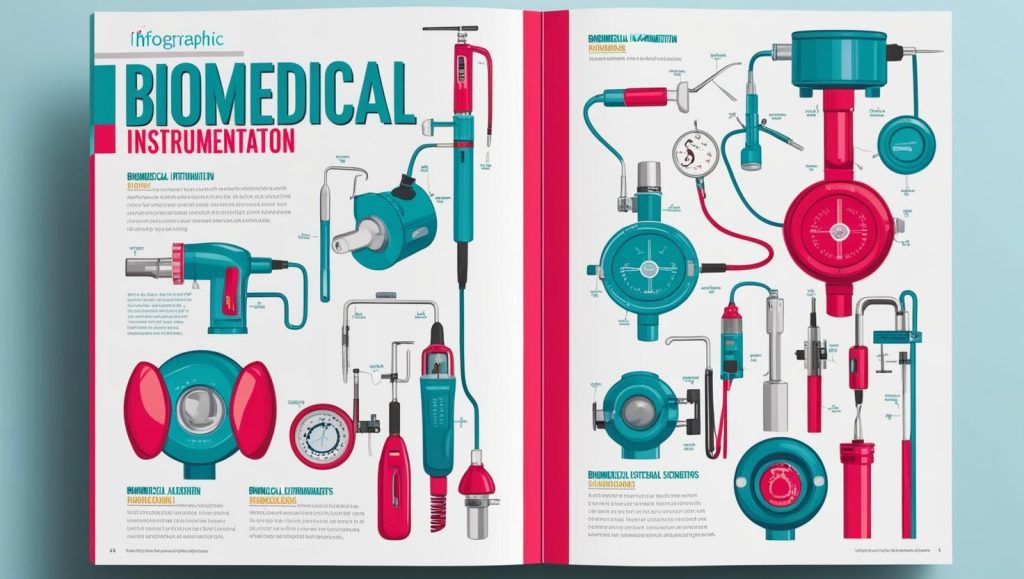Introduction
Biomedical instrumentation is a crucial field that integrates engineering principles with medical and biological sciences to develop medical devices used for diagnosis, monitoring, and treatment. As students delve into this complex subject, they often face challenges in understanding intricate concepts, circuit designs, and applications. If you are struggling with your assignments, this Biomedical Instrumentation Homework Help guide will provide valuable insights, resources, and tips to help you succeed.

Understanding Biomedical Instrumentation
Biomedical instrumentation encompasses the design and application of medical devices that aid in patient care. These devices range from simple thermometers to sophisticated imaging systems like MRI scanners. The subject involves multiple disciplines, including electrical engineering, mechanical engineering, and computer science.
Key Topics in Biomedical Instrumentation
- Medical Sensors and Transducers: These devices convert physiological signals into electrical signals for analysis. Examples include temperature sensors, pressure transducers, and electrocardiogram (ECG) electrodes.
- Signal Processing in Biomedical Devices: Signal acquisition and processing are fundamental in biomedical engineering. Techniques like filtering, amplification, and analog-to-digital conversion are widely used.
- Medical Imaging Systems: Technologies like X-ray, CT scans, MRI, and ultrasound are crucial for diagnosing medical conditions.
- Biopotential Measurements: This includes ECG, electroencephalography (EEG), and electromyography (EMG), which measure electrical activity in the body.
- Biomedical Instrumentation Circuits: Understanding circuit design for medical applications, including amplifiers, filters, and microcontrollers.
- Patient Monitoring Systems: These include bedside monitors, pulse oximeters, and wearable health devices.
- Therapeutic Devices: This involves defibrillators, ventilators, dialysis machines, and other life-supporting instruments.
- Regulatory Standards and Compliance: Biomedical devices must adhere to strict safety regulations such as FDA, ISO 13485, and IEC 60601.
Challenges Students Face in Biomedical Instrumentation Assignments
Biomedical instrumentation is a multidisciplinary field, and students often encounter various difficulties, such as:
- Complex Theoretical Concepts: Understanding the physics and engineering behind medical devices can be challenging.
- Mathematical Computations: Many assignments require solving differential equations, Fourier transforms, and signal processing algorithms.
- Circuit Design and Simulation: Using software like MATLAB, LabVIEW, and Multisim to design and analyze circuits can be overwhelming.
- Programming in Biomedical Engineering: Some tasks involve coding in Python, C++, or MATLAB for signal processing and automation.
- Lack of Practical Exposure: Theoretical knowledge without hands-on experience can make learning difficult.
How to Excel in Biomedical Instrumentation Homework
1. Utilize Online Resources
There are various online platforms where you can find lectures, tutorials, and guides on biomedical instrumentation. Some recommended resources include:
2. Refer to Standard Textbooks
Books like “Medical Instrumentation: Application and Design” by John G. Webster and “Introduction to Biomedical Engineering” by Enderle, Blanchard, and Bronzino offer in-depth knowledge on the subject.
3. Practice Circuit Simulations
Using simulation software like Multisim, Proteus, or LTspice helps students understand circuit behavior before implementing them practically.
4. Seek Professional Homework Help
If you find certain assignments too challenging, you can seek assistance from professional tutors or homework help websites such as:
- Chegg
- TutorMe
- Course Hero
- Study.com
5. Join Online Forums and Discussion Groups
Platforms like Stack Exchange, Quora, and Reddit have active communities where students and professionals discuss biomedical engineering topics.
6. Work on Real-World Projects
Applying theoretical knowledge to real-world projects enhances understanding. Consider building a simple ECG monitoring system or a temperature sensor using Arduino.
7. Improve Your Technical Writing Skills
Many assignments require report writing. Learning how to write technical reports and research papers effectively will improve your academic performance.
Importance of Biomedical Instrumentation in Healthcare
Biomedical instrumentation plays a significant role in modern healthcare by:
- Enhancing Diagnosis: Devices like MRI and CT scans provide detailed internal imaging of the body.
- Improving Patient Monitoring: Continuous monitoring of vital signs helps in early detection of abnormalities.
- Enabling Minimally Invasive Procedures: Technologies like endoscopy and laparoscopic surgery reduce recovery times and complications.
- Supporting Life-Saving Treatments: Devices like pacemakers, ventilators, and dialysis machines save lives daily.
Conclusion
Mastering biomedical instrumentation requires a solid understanding of engineering principles, medical sciences, and technology. If you need Biomedical Instrumentation Homework Help, make use of online resources, textbooks, simulation software, and professional tutoring services. Engaging in hands-on projects and discussions will also enhance your learning experience. By leveraging these resources, you can excel in your studies and contribute effectively to the field of biomedical engineering.


